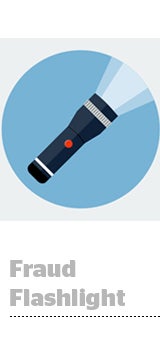 Ad tech companies Ghostery and IPONWEB have combined their technologies to launch an antifraud service Thursday called Ghostery Verified Domains.
Ad tech companies Ghostery and IPONWEB have combined their technologies to launch an antifraud service Thursday called Ghostery Verified Domains.
The service, designed for an RTB environment, enables advertisers to allocate campaign dollars based on the perceived level of legitimate traffic. These levels include verified, masked, suspicious or unknown.
“It’s creating an extra data layer for advertisers for inventory selection,” said Ghostery CEO Scott Meyer. “[Advertisers can] take a calculated risk that [certain impressions] might not be a real user or publisher, but decide that at a certain CPM, it might be something you’re able to buy.”
While Meyer described the service as “complementary” to other fraud-detection offerings from the likes of Integral Ad Science and DoubleVerify, he added that those existing solutions differ in two respects. They may rely on synthetic data, which doesn’t come from real users, in order to validate the traffic.
Others only offer post-campaign assessments “after the dollars are lit on fire.” That’s great for direct buys, noted Mike McMaster, Ghostery director of custom solutions sales, but not for real-time bidding: “You need the information at bid if you’re going to rely on programmatic.”
Ghostery Verified Domains hinges on Ghostrank (a tracker that users of the Ghostery browser app can opt in to) and IPONWEB’s BidSwitch, designed to enable interoperability between different ad platforms.
Ghostery reports 20 million real people have activated Ghostrank. The Verified Domains service cross-references the ad scripts those individuals load with the 20 billion daily bids filtering through BidSwitch. Through this process, Verified Domains can determine if “what the sell side says they’re offering is what the buy side delivered,” McMaster said.
A pilot test showed that up to 40% of paid impressions fell into the suspicious or masked categories.
While the service was designed for advertisers, Meyer sees it as a “net positive” for publishers, too. “Right now there is a fraud discount baked into every bid because brands don’t trust the ecosystem.”
One example is with masked domains. A legitimate publisher with multiple sites may use masking to sell inventory under the umbrella company, for example. But when masking happens, Meyer says that there is usually less bang for the advertiser’s buck.
“Let’s say you have four or five different SSPs masking a piece of inventory that’s not hard to get access to. You might find that you bought a ton of inventory you didn’t need,” Meyer said. “Not every piece is fraudulent in that it’s a bot, but the advertiser isn’t getting the value it thinks.”












